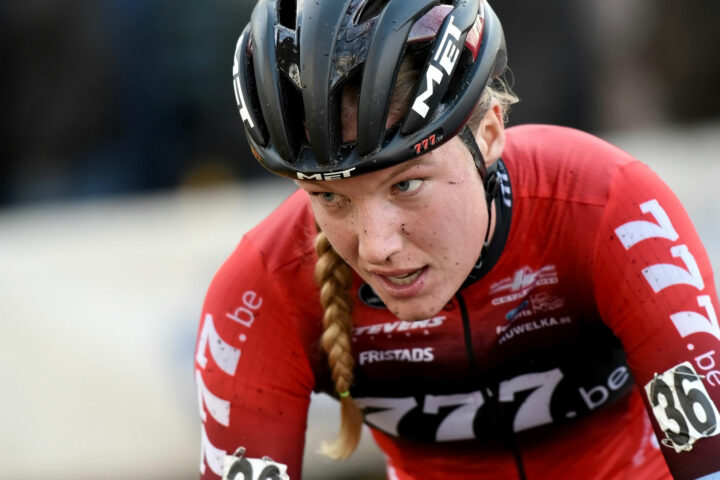Accepting feedback and criticism is a necessary part in every athlete’s development. Coach Holicky details how to create the best mindset so you can achieve your full potential.
Video Transcript
Chris Case 00:00
Hey everyone, I’m Chris Case, here again with Grant Holicky of Forever Endurance, and today we’re talking about something that I think is often overlooked, but is very critical, and that is how to take advice how to take feedback. You might even call it how to take criticism in a constructive way from your coach.
Feedback and the Coach-Athlete Relationship
Grant Holicky 00:16
Yeah, absolutely. I think this is a vital part of the coach-athlete relationship, and any relationship honestly, is how you take that feedback from the other portion of that relationship, and so often it’s focused on how the coach is delivering it. I think that’s incredibly important, how to give positive feedback, how to get positive reinforcement, but there are two pieces in that puzzle, there are two people in that diet. So, how you’re taking that as an athlete is important, too. Can you see it as something that’s going to propel your sport to the next level? Or do you see it as a personal affront? That differentiation is important to the athlete and to the coach is really going to help that relationship and help your sport grow.
Chris Case 00:59
Absolutely. Can’t wait to talk about it. Let’s dive in.
Chris Case 01:12
Welcome to Fast Lalk Laboratories, your source for the science of endurance performance.
Chris Case 01:22
Well, in the intro there you talked a lot about how the message is delivered from the coach, but let’s talk about how it’s received from the athlete, I think that’s important and what we want to focus on here.
How Feedback Is Received From the Athlete
Grant Holicky 01:32
Yeah, absolutely. I think as I said, I think a lot of this, and it is very, very important how the coach is delivering that message and how they see the athlete is incredibly important. We’re going to talk a lot today about how the athlete sees themselves, and how the athlete sees their sport and their process through sport. There’s no way around it feedback whether constructive or destructive feedback is going to happen, and the higher the level, the more you’re going to see it. So, as we look to young athletes or older athletes, and how we want to get better, we must hear some of that stuff that we don’t necessarily want to hear.
Chris Case 02:09
Sure. We all make mistakes from time to time.
Turning Failure Into an Opportunity
Grant Holicky 02:12
Yeah, even me and I’ve made a lot of them, and one of the things that I’ve tried to do in my career is understanding that that’s an opportunity to move forward, right? I think there are two ways to look at failure. One of the ways to look at failure is I screwed up, this is on me, it’s a disaster, and it’s a finite thing, it’s an endpoint. One of the things you must realize is that sport is growth, and sport is an ongoing process. We’re going to be doing this for a long time that may be in terms of months, maybe in terms of years, so there is no finite point, right? You could have a disastrous race or disastrous session, and it doesn’t define you, it’s just one piece of the puzzle along a huge continuum. So, it’s super important that we’re looking at this in that context, that this is growth, and this is a process. So, if something goes wrong, or somebody criticizes something that we’re doing, understanding that is an opportunity to move forward, really reframes the whole thing, and lets us see it in a much more beneficial light and a much more positive light, I would much rather look at something as an opportunity than a failure.
Chris Case 03:21
Yeah. I think that sounds a little bit cliche.
Grant Holicky 03:24
Yeah, absolutely.
Chris Case 03:26
But it’s amazing if you study what professional athletes do, the best of the best, and, you know, if you want to progress in your sport, why not look at them,
Grant Holicky 03:36
Absolutely.
Chris Case 03:36
To understand what they do. They move on from failures so quickly, because they can set it aside, learn from it, and move forward.
Grant Holicky 03:45
Absolutely. There’s are some great qualitative studies that are done compiling interviews with high-level athletes and how they see their sport, how they look at this process. Chris, you’re right, so many of them see failure as an opportunity. They see it as a steppingstone, and so many will talk about some of the biggest failures and disasters of their life being the driving point or the impetus for their later success. So, yeah, you know, some other things I’ll often say is don’t look at the individual very best athlete and what they’re doing but look at what all the athletes are doing that’s the same. What are the top eight in the Olympic swimming final all doing? Okay, copy that. Don’t necessarily look at what Katie Ledecky is doing and try to copy that but look at what all of them are doing. There’s a reason they’re all at that level.
Chris Case 04:34
Right.
Self-Determination Theory
Grant Holicky 04:34
So, that’s an incredible point, and what this kind of boils down to is this idea, and it’s a theory developed by Ryan and Deci, and it’s called the self-determination theory. They are big believers that this is the driver for high-level sport, and high-level resilience, and high-level motivation, and high-level of mental skills in athletes. What the self-determination theory says is that every athlete is going to need three things.
Relatedness
Grant Holicky 05:03
They’re going to need relatedness; they’re going to need to feel like they’re involved in something that they belong in. They have other people that can relate to what they want to do.
Chris Case 05:13
It’s a bit of that community or village simple quality.
Competence
Grant Holicky 05:16
Absolutely. I think it’s important that training groups foster that, coaches foster that. The second piece is competence. We must feel like we’re good at what we’re doing, otherwise what’s the point?
Chris Case 05:28
Yeah, you’re just going to get kicked.
Grant Holicky 05:30
Yeah. Competence may come in pieces, it’s a growth, and I think far too many people equate confidence with competence, that’s not the same thing. You can have an incredibly competent athlete that has no confidence in this moment. So, but we must feel like there’s a reason we’re in this sport.
Autonomy
Grant Holicky 05:30
The last thing and this one is so often missed and not talked about is the athlete needs to feel a degree of autonomy over what they do, they must feel like they’re the one in charge. So, when we talk about all of these things, how to take feedback? How to take those things? Work first on who you are as an athlete, do you feel related? Are you around people that can give you that kind of feedback? Do you feel competent? Do you feel like you belong? Both of those things they do belong. Third, do you feel in control of what it is that you’re doing? If you have those things, what you start to see is the individual motivation for a person starts to become more inward, instead of outward, they’re competing for themselves instead of for the accolades or for the win. When you’re competing for yourself, it becomes a process more than an outcome and a result, and so often, in my coaching, or so often, in my work, what I’m trying to push the athletes to is that this is a path, it’s a process. We want to enjoy that process, we’re going to follow along with that process, those goals and those results and those accolades, and the newspaper articles, and the people talking about us, they’re going to come along the way, but it’s more about what you’re feeling, and did you reach what you wanted to reach? When you’re in that mindset, then some of that criticism becomes so much, it’s so much easier to frame that as an opportunity, it’s so much easier to frame that as, as a benefit, right?
Chris Case 07:17
Yeah.
Grant Holicky 07:17
So, it starts with you, it starts with that how you see yourself and why you’re doing the sport. I think, for me in swimming, my background in swimming, I’ve seen so many young athletes start in the sport to win, and they continue in the sport to win. The problem is at 13, 14, 15, 16, 17, 18, well, they’re not the tallest kid anymore, you know, they’re not the strongest kid anymore, and suddenly, they’re not winning.
Chris Case 07:44
Yeah, yeah. There’s a giant void.
Grant Holicky 07:47
Right, right. So, are they still developing something with the sport? We see it even with master’s athletes, you know, even in something as simple as your 40, and you’re the youngest in your age group, and you’re kicking everybody’s butt, and now you’re 43 and everybody that’s walking into the age group is kicking your butt, right? Is it still worth it? Are you just going to bail out until you turn 45?
The Ability To Take Criticism
Chris Case 08:07
Right, right.
Grant Holicky 08:08
So, I think sport is incredibly important in the component of life, it’s so important to so many people, it’s so important in our society for health reasons, how do we keep people in it? I think how they view themselves and how they’re seeing that path and that process, that’s how we keep them in it, that internal motivation. The point of today, like we said, that’s what makes you be able to reframe those conversations, you can turn to me at the end of a cross race and go, “Hey, why did you take that line? What were you trying to do there?” It’s not a criticism, and I can get all defensive, or I can go, “I don’t know, I thought this was going well,” well, “Try this.”
Chris Case 08:52
Yeah, yeah.
Grant Holicky 08:53
Oh, crap. Awesome. That’s great. That community and that ability to take input
Chris Case 09:02
To be accepting of that input.
Grant Holicky 09:03
Absolutely, is crucial. One of my professors in graduate school has this great line you know, open up and negotiate your resistance to change. What he’s saying is we all have this internal resistance to change, we’re creatures of habit.
Chris Case 09:25
Ego, or habit, something like that.
Taking Risks and Celebrating Failures
Grant Holicky 09:28
Million things, right? Or just simply the risk, doing something different means you’re risking, you might be risking mediocrity, you might now become great, or you might be risking your place in the sport you might not do as well, but understanding that it’s not finite, and that taking that half step back made give you eight steps forward. So, really negotiating that resistance to change, being willing to say, you know, I’m going to try this, and this is what why, and this is super important for master’s athletes, this is why kids are so good at learning things, they don’t care. They don’t know enough to be embarrassed or to be worried about it, they will try anything, they will fall on their face, they will get up, and usually, if you go, “Great job, that was awesome,” they’ll try it again. That’s one of the things that we have to really look for with our older athletes, too. Older athletes might be 18, or older athletes might be 48, how do we walk into this and say, this is the process, take those risks, celebrate failures, and then move forward from those.
Chris Case 10:38
I like to think of it a bit as you’ve got a ladder, and somebody comes along and kind of chops one of the rungs of the ladder out from under you, you could either see that as “Oh my God, I’m gonna fall off this ladder,” or you could say, “Oh, now I can build it back stronger, and I can take a further step up on that ladder.”
Grant Holicky 10:59
Or I can figure out how to do this without this rung at all, right?
Chris Case 11:04
However you want to use that analogy, too.
Reframing Criticism
Grant Holicky 11:05
Right. We talk so much about doing that with our children, we talk so much but that’s how we want to teach, that’s the growth mindset we want to have, but we don’t do it enough of ourselves. So, finding that ability to look at it and go, you know, okay, first things first, I know I’m not perfect because we know we’re not perfect, but our imperfections are not to get too philosophical, but our imperfections are what make us us. Some of those imperfections are what make the people around us love us. So, embrace them, and see if you can make them a little more perfect, right? Every time I hear an athlete say me, but I’m a perfectionist, oh, it scares me, it’s terrifying. The whole idea of being a perfectionist means that you’re striving for something that in reality is pretty much unattainable.
Chris Case 11:54
Yeah.
Grant Holicky 11:55
I don’t know anybody that has ever delivered the perfect race, or the perfect swim, or the perfect bike race. I’m sorry, I’ve coached some of the highest-level athletes in the world and been able to walk out of that race afterward and go, “We could have done this better.”
Chris Case 12:09
Sure.
Grant Holicky 12:09
Right? So, perfection may be unattainable. So, saying that’s all you’re going to put up with, guarantees failure.
Chris Case 12:17
Sure.
Grant Holicky 12:18
So, how we see that and what we’re open to learning, and what we’re open to changing is incredibly important.
Chris Case 12:24
Another fascinating discussion with you, thank you, Grant.
Grant Holicky 12:26
Thank you.
Chris Case 12:27
Absolutely.
Chris Case 12:28
Tell us more about how you’d like to hear from our listeners out there, or watchers, or viewers.
Grant Holicky 12:32
Yeah, you know, get on the forum, and tell us a little bit about how you’ve taken advice, how you take feedback, how you take criticism, and one of the things I’m super interested in is how that’s grown, or how that’s changed through the years. Maybe a coaching relationship with one way and now it’s another way and how that’s really changed for you in a positive way or even in a negative way. I think talking about the things that are going right is as important as talking about the things that are going right. So, hop on the forum, let us know what you think, and we look forward to hearing from you.
Chris Case 13:01
Absolutely. Thanks again for joining us here at Fast Talk Laboratories.





